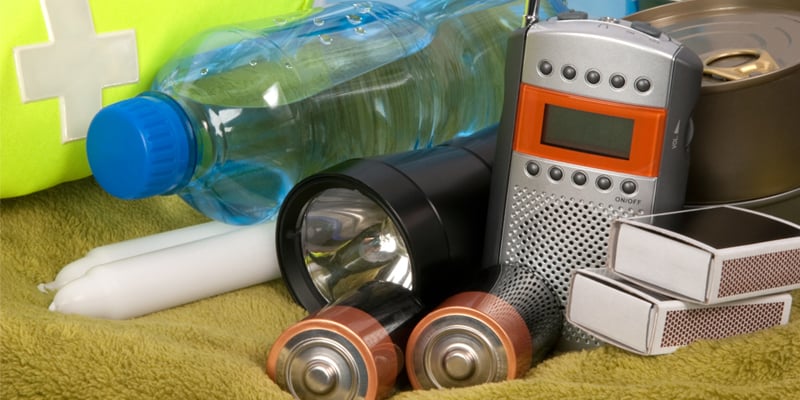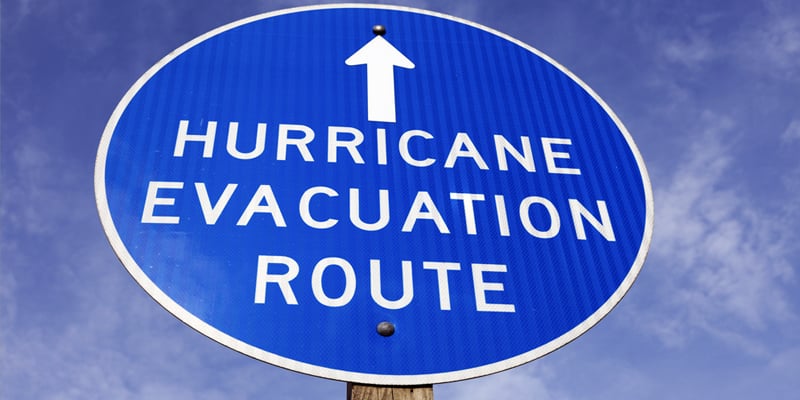
By
Rob Boyle
October 10, 2024
Updated
October 10, 2024

How do I prepare for a natural disaster?
A natural disaster can occur at any moment no matter what country you are in, whether at home or at work.
It is important to plan ahead and prepare for a sudden emergency. The next time disaster strikes, you may not have much time to act.
What is a natural disaster?
A natural disaster can strike in any place at any time, whether at home or at work. Floods, hurricanes, tsunamis, tornadoes, earthquakes, and other extreme weather affect the whole planet. It is important to plan ahead and prepare for a sudden emergency.
The next time disaster strikes, you may not have much time to act.
What can I do to plan for a natural disaster?
Discuss ideas with your family or co-workers, then prepare an emergency plan where everyone will see it - on the refrigerator or bulletin board.
It is important to have these conversations now in order to learn how to protect yourself and cope with disaster.
Below are some suggestions on how to best prepare for a natural disaster or hazard in your community. For more information, contact your local office of emergency management.
- Familiarize yourself with the types of disasters which could occur in your area and ask how to prepare for each disaster. Ask how you would be warned of an emergency and learn your community’s evacuation routes. Ask about special assistance for elderly or disabled persons.
- Learn about the emergency plans of your children’s school or day care centre.
- Create an emergency plan for your household. Get together to discuss the dangers of fire, severe weather, earthquakes and other emergencies. Find safe spots in your home for each type of disaster. Draw a floor plan of your home and mark escape routes from each room, and post emergency telephone numbers near phones. Discuss what to do about power outages and personal injuries. Teach children how and when to call police and fire rescue
- Pick one remote and one local friend or relative to call if you are separated during a disaster (It is often easier to call remotely than within the affected area)
- Identify two emergency meeting places: one near your home in case of a fire and one outside your neighborhood in case you cannot return after a disaster.

What do I need in a natural disaster?
Prepare a disaster supplies kit by assembling items you might need in an evacuation and store it in an easy-to-carry container, such as a backpack or duffel bag, and include:
- A supply of water
- A supply of non-perishable packaged or canned food with a non-electric can opener
- A change of clothing, rain gear and sturdy shoes
- Blankets or sleeping bags
- A first aid kit and prescription medicine
- An extra pair of glasses
- A battery-powered radio and flashlight with extra batteries
- Credit cards and cash
- An extra set of car keys
- A list of family physicians
- A list of important family information (the style and serial number of medical devices such as pacemakers)
- Special items for infants, elderly or disabled family members
Remember to keep it simple. The less moving parts, the better. Fancy preparedness plans and survival gear fail under the pressures of a real-life scenario. Prepare for whatever disaster is likely to affect your area, as not every place on the planet has the same needs.
How can I protect my documents and possessions?
- Keep the following records in a waterproof, portable container:
- Will, insurance policies, contracts, deeds, stocks and bonds
- Family records (birth, marriage, death certificates)
- Passports, social security cards, immunization records
- Bank account numbers
- Credit card account numbers and companies
- Important telephone numbers
- Inventory of inventory of valuable household goods (include photos if possible)
- Receipts and serial numbers for major appliances
- Appraisal of jewelry and artwork
- Store your kit in a convenient place known to all family members.
- Keep items in airtight plastic bags. Change your stored water supply every six months so it stays fresh. Replace your stored food every six months. Rethink your kit and family needs at least once a year. Replace batteries, update clothes, etc.
- Ask your physician or pharmacist about storing prescription medications.
- If possible, move and/or elevate furniture, valuables, and important documents to a safe place.
What should I do in a hurricane?
Hurricanes are strong storms that can be life-threatening and cause serious hazards. You should always be prepared in case of a storm or flood. Learn what to do to keep yourself and your loved ones safe.
How do I prepare for a hurricane emergency?
Before an expected hurricane, take time to do some emergency planning by developing and documenting plans for your specific risks:
- Protect yourself and family with a family emergency plan.
- Be sure to plan for meeting locations away from home.
- Business owners and site locations should create workplace plans. Check with your supervisor if there is one already in place.
- Make sure schools and day cares have school emergency plans.
- Put together a basic disaster supplies kit, which should include a First Aid kit, flashlights, a battery-powered radio, extra batteries, local maps, water, and non-perishable food.
- Be prepared for the hurricane by stocking up on other emergency supplies including protective clothing, medications, important documents, road maps, and a full tank of gasoline.
- Have your evacuation plan ready before a warning is issued to identify a safe shelter and a route to get there. Contact your local emergency management agency for more information.

What should I do during a storm?
As a storm unfolds, you should listen to local authorities on the radio or television. Evacuation routes often close as a storm develops. Dedicated professionals and improved technology have made hurricane forecasting more accurate than ever before—but it’s far from precise.
- If forced to weather a storm, get inside the most secure building possible and stay away from windows.
- If power is lost, turn off all major appliances to reduce the chances of damage from a power surge.
- Do not handle electrical equipment and do not use the telephone except in an emergency.
When waiting out a storm, be careful. The danger may not be over yet.

Be alert for tornadoes, which are often spawned by hurricanes and the calm “eye” of the storm.
It may seem like the storm is over, but after the eye passes, the winds will change direction and quickly return to hurricane force.
What do I do after a storm?
- Make sure that all is definitely clear outside, and the storm has completely passed before going out.
- Report downed power lines and stay away from them.
- Use stored water and food.
- When power returns to your home, do not start all major appliances at once. Turn them on gradually to reduce damage to sensitive equipment.
- Do not use electrical or gas appliances that have been wet, and do not turn on damaged appliances because of the hazards of electric shock or fire.
- Be patient. Things will take a while before they get back to normal.
